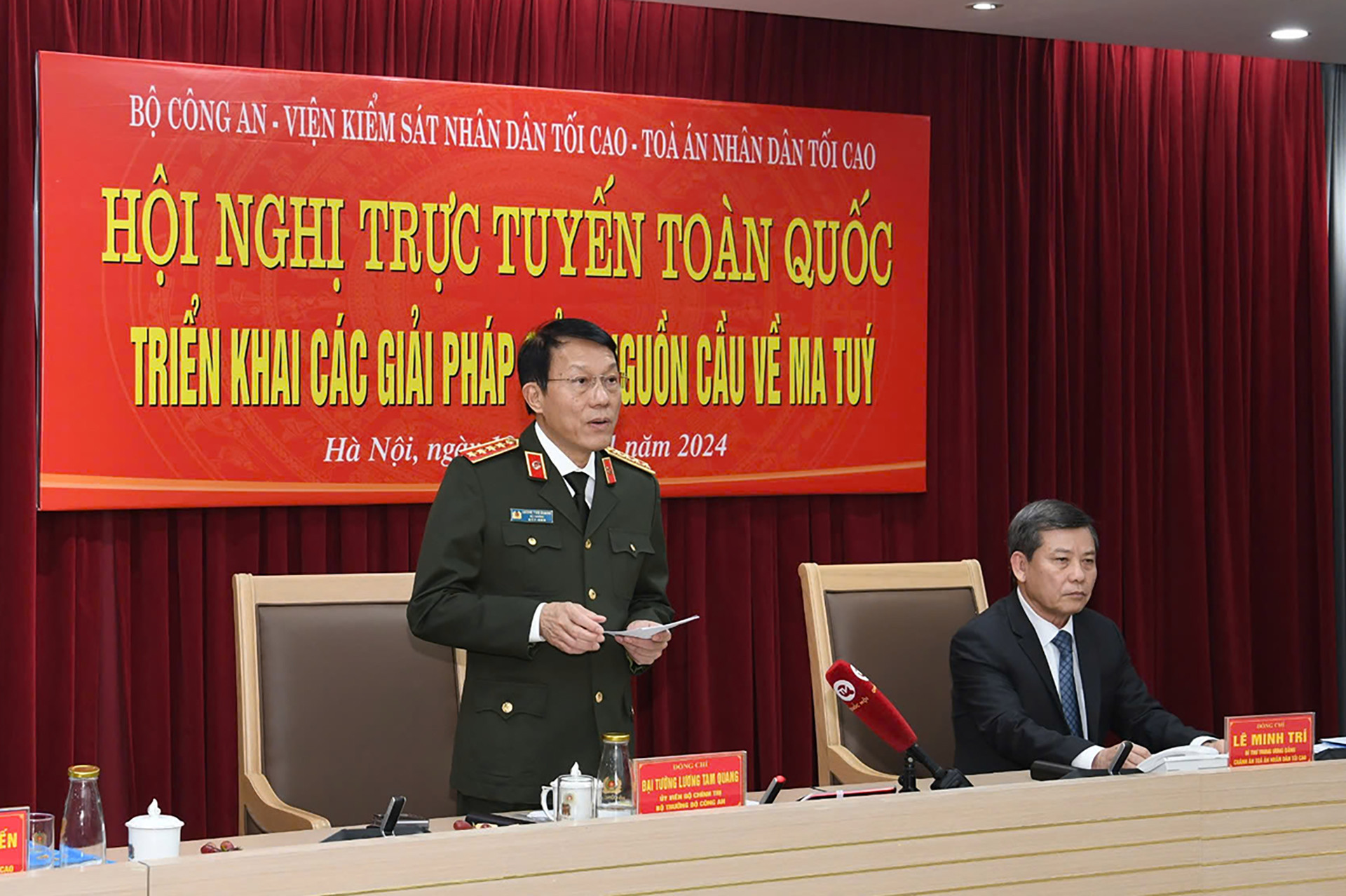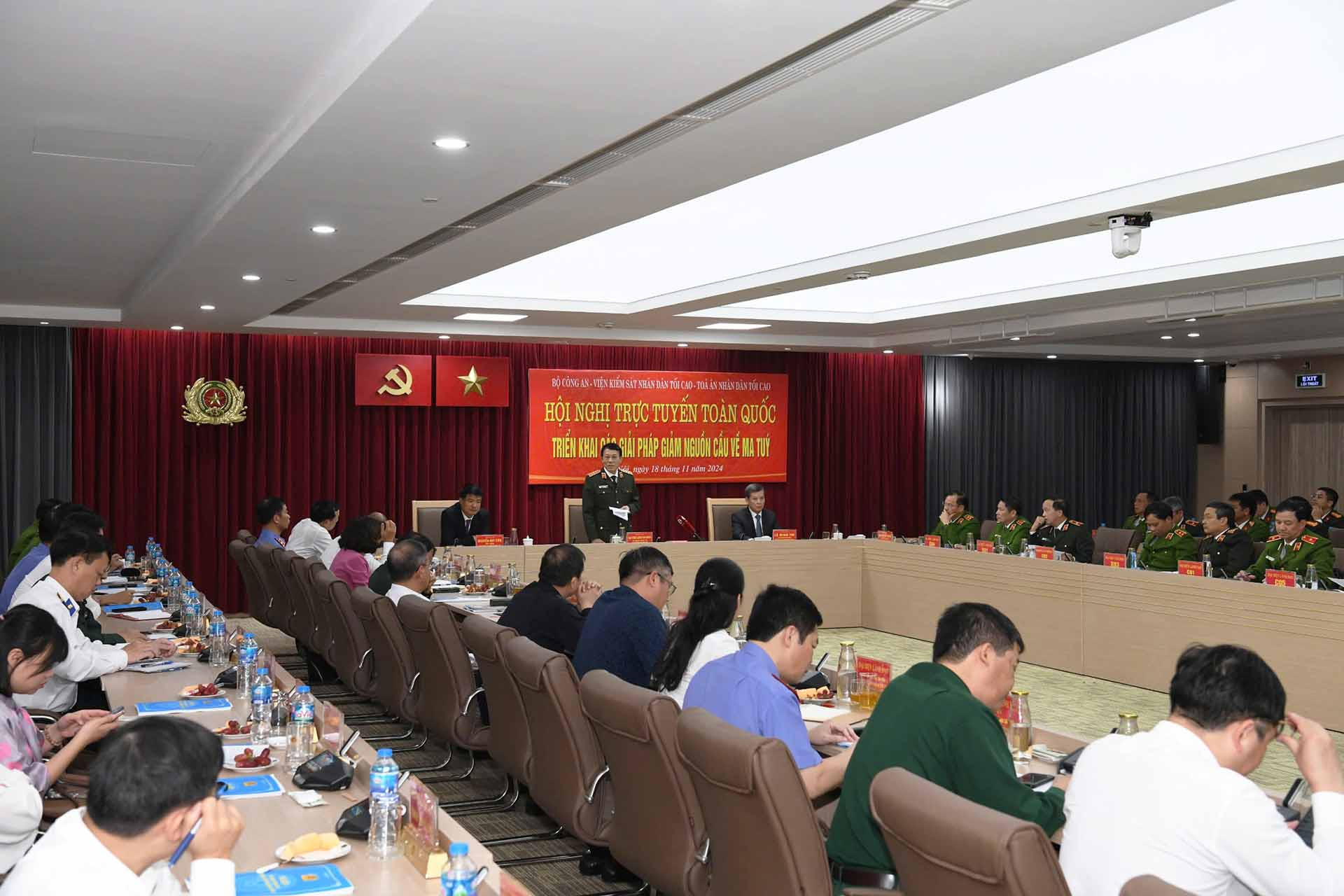On the morning of November 18, the Department of Drug Crime Investigation (C04) revealed that the Ministry of Public Security recently held a nationwide online conference to discuss strategies for reducing drug demand.
Since 2022, law enforcement has uncovered and dealt with over 67,000 drug-related cases, arresting more than 105,000 individuals and seizing nearly 1.6 tons of heroin, over 1.7 tons of cannabis, and more than 7.6 tons and 7 million pills of synthetic drugs.
These efforts demonstrate significant success in curbing the supply of drugs entering Vietnam and preventing the country from becoming an international drug transit hub.

Drug users are increasingly younger, with 44.6% aged 12–30 and 55.4% over 30. Most users (60%) are unemployed or have unstable jobs, and synthetic drugs remain the primary substance used.
The current demand for illicit drug use and addiction, especially among individuals not in rehabilitation centers, represents a significant "demand source" for drug consumption. This demand poses severe risks to public health, the labor force, and the economy, with drug purchases costing an estimated VND 1.5 trillion (~$60 million).
Authorities have noted a rise in cases where individuals rent private accommodations such as motels, hotels, serviced apartments, and high-end resorts to consume drugs.
There have also been incidents involving government officials, public employees, artists, and football players organizing illicit drug use.
In addition, the use of “laughing gas” (nitrous oxide) and drugs disguised as or mixed into food, beverages, herbs, cigarettes, and e-cigarettes has become increasingly common, especially among youth at establishments with sensitive security concerns.
The Ministry of Public Security highlighted that efforts to manage drug users and addicts have been coordinated across the country.

Key initiatives include:
1. Improved Legal Framework: Enhancing policies and regulations to support anti-drug efforts and rehabilitation.
2. Inter-Agency Coordination: Strengthening collaboration between law enforcement, prosecutors, and courts to ensure swift, fair, and lawful handling of drug crimes.
3. Comprehensive Management: Implementing measures from the central to local levels to oversee drug users, addicts, and post-rehabilitation individuals effectively.
However, significant challenges remain:
- Many drug users and addicts are not adequately identified or brought under management.
- Existing rehabilitation facilities are insufficient to meet current needs.
- Diagnosing addiction and providing opioid replacement therapy remain problematic.
Efforts will include:
- Expanding investigations to dismantle drug trafficking chains comprehensively.
- Strengthening cooperation between investigators and prosecutors to collect evidence and prosecute drug crimes effectively.
- Blocking drug supply chains to reduce domestic demand and minimize the overall impact of drug use in Vietnam.
Dinh Hieu